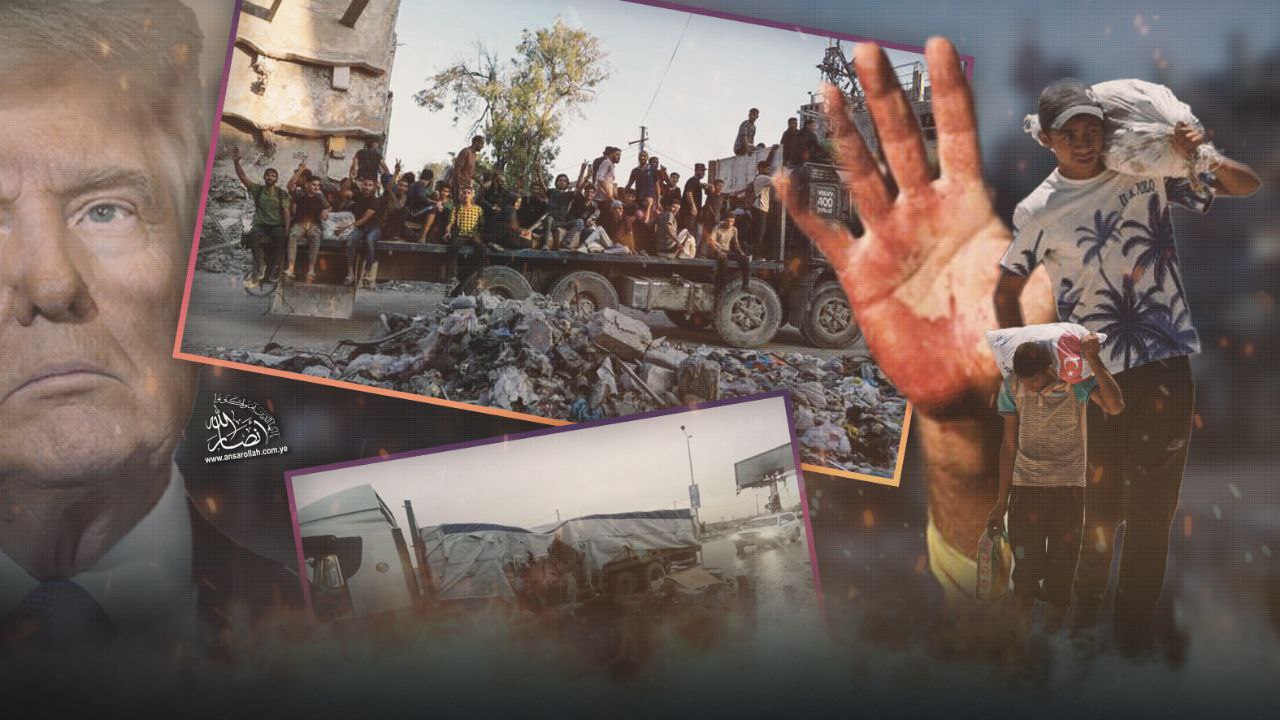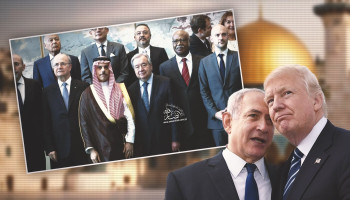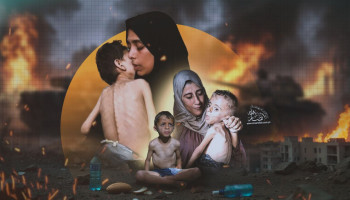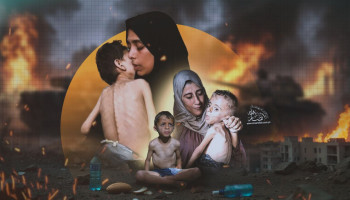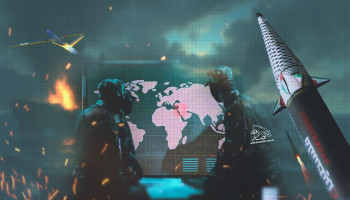Published: Muharram 21, 1447 AH
In the initial attacks in which the Zionist military targeted lines of starving Palestinians awaiting aid—perpetrating some of the most heinous crimes against civilians too weak to even stand—the justification was that armed elements were allegedly among those in line, preparing for hostile action. Soon after, these massacres were repeated without even the pretense of justification. The world came to realize that these summary executions were part of an ongoing systematic genocide against the Palestinian people.
The international community has grown numb. Its reactions have remained confined to rhetorical condemnation, never advancing beyond slogans. Meanwhile, the Zionist entity no longer bothers to justify its continuation of what Palestinians now call the “Death Traps.”
According to the Euro-Mediterranean Human Rights Monitor, the repeated crimes and the absence of a serious international response have led the Israeli military to stop issuing even fabricated justifications for its crimes against civilians. The Israeli entity no longer feels pressure of accountability, inquiry, or protest from relevant states and organizations.
The global reaction to these massacres has been largely symbolic. Despite condemnations and affirmations of Palestinians' right to food and aid, these statements do little more than serve as face-saving measures. The very nations that present themselves as "champions of human rights"—quick to accuse others of violating international law—have stood idle while those same principles are crushed in the occupied Palestinian territories by the Zionist oppressors, who commit atrocities that defy every standard of human decency: luring the starving with promises of aid, only to slaughter them in cold blood.
In its latest display of ineffectiveness, the United Nations merely called for an investigation into the killings of those seeking humanitarian aid, but no action beyond that. Its statements have become little more than expressions of hope, as though issuing press releases is now the full extent of its role. Yet the UN has tools to turn these demands into real pressure to end the catastrophe and secure food and water for Palestinians.
Back in late April, UN Secretary-General António Guterres stated: “Israel has prevented the entry of food, fuel, medicine, and commercial supplies into Gaza for nearly two months.” He further warned that this blockade is depriving more than two million people of life-saving aid. Guterres added: “Aid is non-negotiable. Israel must protect civilians, approve aid programs, and facilitate their implementation.”
Despite these statements and repeated calls to investigate what has become known as the “Death Traps,” nothing has changed. Recently, the U.S., with characteristic brazenness, stepped forward to defend the Israeli enemy—this time attacking the United Nations itself. Washington imposed sanctions on Francesca Albanese, the UN Special Rapporteur on the situation of human rights in the occupied Palestinian territory, for her detailed documentation of Israel’s genocide in Gaza.
Albanese’s reports exposed horrific living conditions caused by bombing and starvation, and called for the prosecution of those responsible. U.S. Secretary of State Marco Rubio described her work as “illegitimate and disgraceful.” The UN once again did nothing, merely condemning the U.S. sanctions.
UN spokesperson Stéphane Dujarric stated that the U.S. sanctions against Albanese are “unacceptable” and represent “a dangerous precedent.” He emphasized that Albanese acts as an independent expert reporting to the UN Human Rights Council, and that unilateral sanctions targeting UN personnel violate the independence of their work and are completely unacceptable.
Hamas called the sanctions “a blatant expression of the U.S. administration’s bias in favor of Israeli war crimes,” and a clear display of its contempt for international institutions and their representatives.
Francesca Albanese described the sanctions as “a dangerous precedent” and said they are “designed to undermine my mission.” She declared: “I will continue to do what must be done, even if it presents a challenge.”
Mariana Katzarova, the UN Special Rapporteur on human rights in Russia, condemned the UN’s passivity, telling Reuters: “This is completely unacceptable. It opens the door for any government to do the same. It’s an attack on the entire UN system. Member states must rise and denounce this.”
Albanese’s pivotal report also exposed the complicity of global corporations in what she labeled the “economy of genocide” in Palestine. Experts and political analysts described the report as a turning point in revealing the extent of institutional support behind Israel’s assault.
Her report revealed that global arms companies had supplied Israel with 35,000 tons of explosives dropped on Gaza—six times the destructive force of the Hiroshima atomic bomb. It identified more than 60 major corporations involved in supporting this genocidal economy.
Among those named were tech giants like Google, Microsoft, and Amazon, which assist with surveillance technology, as well as arms manufacturers like Lockheed Martin, and construction companies such as Caterpillar and Hyundai, which provide the bulldozers used to destroy Palestinian homes, alongside Leonardo.
The U.S. reacted furiously to the report. The Israeli entity rejected it as “distorting facts and an abuse of the Rapporteur’s role,” even going as far as to label the report antisemitic. The U.S. mission to the UN echoed this, calling Albanese’s accusations “false and offensive,” and reportedly pressured Guterres to publicly condemn her and demand her dismissal.
The leader of the resistance described the “Death Traps” as an American-Israeli scheme to control humanitarian aid distribution—those who approach it risk being killed. He stressed that many in Gaza are forced to seek aid but face imminent danger throughout the process: en route to aid centers, while gathering, during collection, and even on the way back home.
He noted that the Israeli military monitors those returning with flour bags and targets them upon arrival at their homes. These massacres during food distribution are among the most horrific crimes committed against the Palestinian people.
He condemned the silence of international institutions, states, regimes, and governments, stating it is a disgrace to remain silent while such atrocities are committed against aid seekers. He argued that Israel is emboldened by the inaction of world leaders, who have failed even to take basic steps in response.
The World Food Programme affirms that “most families in Gaza barely eat one meal a day due to the severe Israeli blockade imposed for months.” One in three people, it states, goes days without food. The WFP’s Deputy Executive Director admitted: “We have never seen anything like what is happening now in Gaza.”
The Euro-Mediterranean Human Rights Monitor concluded that the inaction of powerful countries and their failure to pressure Israel into halting its brutal aid policy has provided political and operational cover. This has enabled Israel to turn aid centers into mass killing zones, encouraged similar crimes elsewhere, and fostered practices that violate Palestinians’ most basic rights and human dignity.

